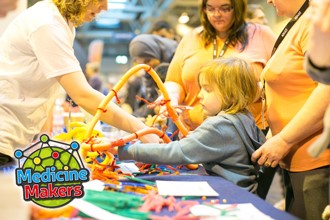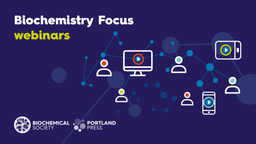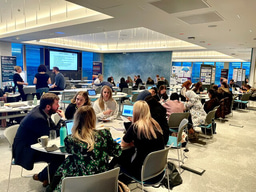Is there a need to engage communities and young people with science? What support is out there for researchers?

Do scientists need to engage communities and young people with research?
Researchers are continually encouraged to carry out public engagement activities by their institutions and companies. Nonetheless, the purpose and aims of public engagement aren’t always clear. Who benefits from public engagement with research? Do communities and young people want to hear about the research world? Is the scientific research sector even accessible to the majority?
Research is showing that young people don’t necessarily feel that science is accessible and relevant to their lives. Many people of all ages and backgrounds feel that they don’t have the opportunities to engage with scientists to understand what research is going on in their local areas.
A study caried out by the British Science Association (BSA), involving a representative sample of 2,000 UK 14-to-18-year-olds and 2,000 UK adults, revealed that 22% of adults in the study thought scientists represented their views, compared to only 12% of 14-18 year olds (1). Additionally, when asked if they thought scientists were speaking directly to them, nearly one quarter of adults thought they were, compared to only 15% of 14-to-18-year olds (1). These figures are strikingly low, considering the considerable public investment into scientific research and development, and highlights the growing gap between the scientific sector and young people particularly.
Data from a recent report by the Campaign for Science and Engineering (CaSE), involving multiple nationally representative polls and 14 focus groups in the UK, showed that approximately two-thirds of people didn’t feel informed about the research and development (R&D) that was happening locally to them, and many don’t feel that they benefit from R&D (2). This feeling was particularly low in those in the socioeconomic group DE (semi- or non-skilled manual workers and non-working people) and in younger people.
Encouragingly, two-thirds of people wanted to hear more about the R&D happening in their local area. People also felt that “accountability is crucial” and they would like to know how public money is being invested (2). When current research is provided in a “specific, relevant and jargon-free way”, many people in the study said they would take the opportunity to discuss R&D, especially if it is linked to a “tangible” problem. This is supported by data from a BSA Future Forum, exploring young people’s views on COVID-19, genetics research and medical data, which highlights that seeing a “clear, everyday connection” increased young people’s personal engagement with the topic (3).
Helpfully for researchers and research charities, people in the study by CaSE felt that individuals working in research and development could be trusted to deliver the messages surrounding R&D, compared to politicians (2).
Data from studies carried out by the BSA and CaSE emphasise that many people do not feel informed about science and research, but do want to hear about it, especially when it is happening locally to them. Reassuringly, researchers and research organisations seem best placed to communicate with communities and young people. The research described highlights that young people can be particularly disengaged with scientists and R&D, which demonstrates the need to increase participation of young people in the STEM sector to secure a future for them in scientific research.
As a sector, we need to take up the responsibility to engage local communities and young people in research and development to improve the access and sense of ownership people have to R&D. Engaging these groups now will undoubtably lead to a more inclusive sector with better outcomes when solving big issues. We have a duty to demonstrate the value and diversity of a scientific career, to help avoid the skills gap that is likely to open further, particularly in the life sciences sector (4). Research carried out at UCL as part of the ASPIRES 2 project, involving over 40 000 10-18 year olds, showed the stark reality that although the majority of young people are interested in science, a small percentage (less than 10% of 17-18 year olds) want to be a scientist (5).
Engagement activities give you the opportunity to showcase the people and jobs involved in carrying out scientific research, hopefully increasing people’s aspirations into scientific careers. Evidence shows that demonstrating why and how research is linked to an everyday or tangible problem in the world, or better yet, in people’s lives directly, can have huge impacts on people’s engagement with science.
What support is out there for researchers?
If you’ve got this far, you might be considering how to engage communities and young people with science and research. Good news! The Biochemical Society can support you to do this through ready-made activities, grants, and support with developing your engagement project.
Developed activities can be used to engage new communities, or could be adapted to make them relevant to your research or to the community you are engaging with.
Our Medicine Makers activity, developed in collaboration with the British Pharmacological Society, introduces participants to the basic mechanisms of how painkillers work in our bodies, using a simple, physical and interactive model of a protein-drug interaction.

Could you demonstrate your research using this activity? Or adapt it to your protein of interest? Maybe the communities you engage with will have new ideas on how to design a drug to target your protein.
Practical and visual activities can help you broach complicated ethical issues surrounding a scientific topic, such as genome editing. Our Scientific Scissors activities allow participants to explore genome editing technologies and engage in discussions about what society should or shouldn’t do with the technologies.
Both activities, and others on the website, can be readily adapted to different participants, ages and events so they can provide a wealth of inspiration for researchers.
The Biochemical Society offers Scientific Outreach Grants to support you to develop activities or engage communities, and are open to any individual, group or organisation. If your engagement activity is aiming to improve or address issues relating to diversity and inclusion in science, then our Diversity in Science grants could be for you.
If you are formulating an idea for an engagement project but aren’t sure where to begin or how to progress, explore our planning your activity page for further support.
The benefits of public engagement can be great, both on you as a researcher and on the participants involved. Whether you are just starting out on your public engagement journey or are a seasoned professional, there is always something new to discover through the people you are engaging with so keep it up!
References
- British Science Association (2022). Science sector risks missing 'golden opportunity' to engage the next generation. British Science Association
- Campaign for Science and Engineering (2023). CaSE Public Opinion: February 2023 Trends Report. Public Attitudes to R&D. CaSE
- British Science Association (2021). Future Forum: COVID-19, genetics research and medical data
- Science Industry Partnership, Office for Life Sciences, Association of the British Pharmaceutical Industry and BioIndustry Association (2022). Life Sciences 2030 Skills Strategy. Cogent Skills
- Archer, L., Moote, J., MacLeod, E., Francis, B., & DeWitt, J. (2020). ASPIRES 2: Young people's science and career aspirations, age 10–19. London: UCL Institute of Education. UCL Discovery
Top image by the Biochemical Society





Join the FEBS Network today
Joining the FEBS Network’s molecular life sciences community enables you to access special content on the site, present your profile, 'follow' contributors, 'comment' on and 'like' content, post your own content, and set up a tailored email digest for updates.